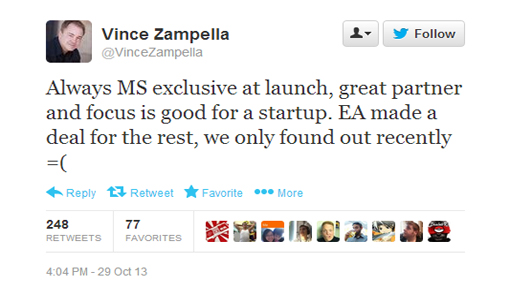Would that make The Order second party?
I thought 1st party was internal studio exclusive
2nd party was external studio exclusive
3rd party was external multi-platform
Or am I wrong? Second party has always seemed like a bit of s grey area.
"First party" is applied in 2 ways The Dev studio, and the Game itself. So it depends on which you are talking about.
You hardly see Games themselves labeled as first party though. When a 3rd Party Dev makes and exclusive games (that the Platform holder funds), we typically call that 2nd Party. In actuality that is a First Party game
"2nd party" is a term created to distinguished between First Party Dev, and First Party Game pretty much

